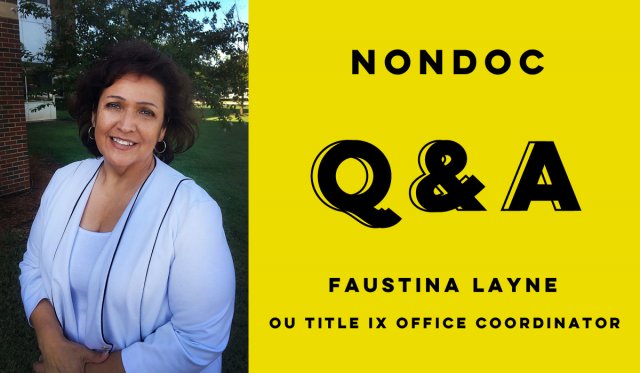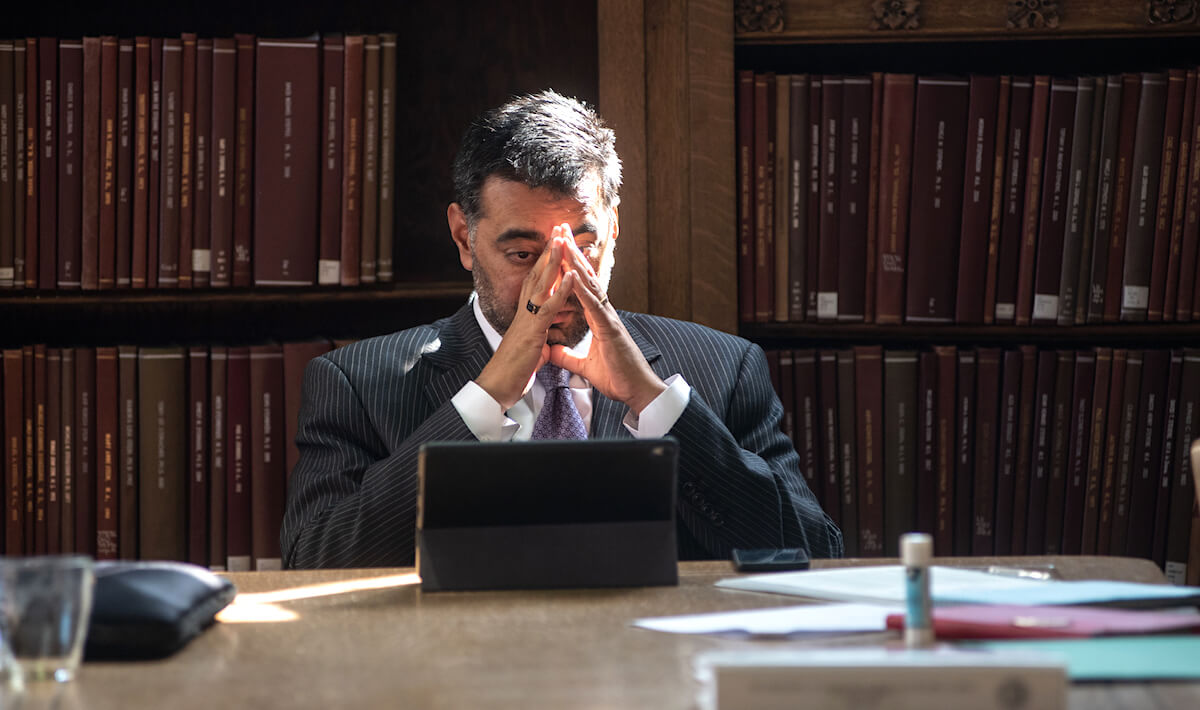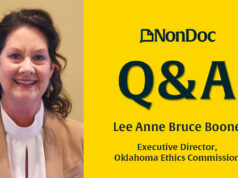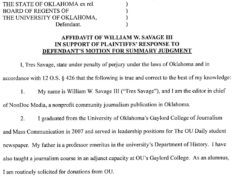With more than 20 years of experience at the University of Oklahoma, Faustina Layne became OU’s interim institutional equity officer and interim Title IX Office coordinator in April.
Months prior to Layne’s promotion, the university committed additional resources and staffing to the Office of Institutional Equity, which is tasked with ensuring “the right of all persons to work and to advance on the basis of merit, ability, and potential without regard to race, color, national origin, sex, sexual orientation, genetic information, gender identity, gender expression, religion, disability, age or status as a veteran.”
The university’s Title IX Office is also nested within the Office of Institutional Equity. Title IX refers to federal law intended to guarantee the right of students and employees to be free from sexual discrimination, sexual harassment, sexual assault and other misconduct at universities receiving federal dollars.
At a national level, Title IX requirements were recently revised, and OU has updated its procedures to comply with the new federal rules.
The following questions were answered by Layne on July 27 prior to the university’s new Title IX guidelines being finalized. Responses have been edited lightly for style and to reflect that the new OU guidelines were released Aug. 14.
OU’s sexual misconduct, harassment and discrimination reporting form is available here.
1) Tell us a little about yourself. How long have you been at OU, how long have you worked in the Title IX Office, and what is your educational and professional background beyond OU’s Title IX Office?
I have been an employee for the University of Oklahoma since 1999. In 2016, I was hired by the Office of Institutional Equity as the associate equal opportunity and Title IX officer for the Health Sciences Center and Tulsa campuses. I have a bachelor of science degree in marketing/management, and I obtained my master of legal studies in health care law from the University of Oklahoma College of Law.
2) You have been the interim institutional equity officer for almost three months. What is one thing about the Title IX Office that you believe was working well before you took over, and what is one thing you have wanted to see improve?
Our Office of Institutional Equity — that includes the Office of Equal Opportunity and our Sexual Misconduct / Title IX Office — was one of the first to be established as being completely independent from any other department on campus. This independence is now considered a best practice across the country and is vital to the integrity of the work being done within our office. I would like to continue to improve on the existing education and awareness initiatives around prevention, response and recovery for all areas of harassment and discrimination, for all members of the university community.
3) The OU Board of Regents granted President Joe Harroz authority to revise the university’s Title IX policies. What types of revisions needed to be made in your mind? What would be your goals and priorities during such a revision process?
There were necessary changes that needed to be made to ensure compliance with Department of Education’s Final Rule. Those include establishing new hearing procedures, identifying decision makers, and establishing an alternate resolution process. I believe that it’s vital that all members of the campus community are informed and provided with education and awareness of these new revisions once they are in place. In addition, everyone in the OU community needs to understand their role and the importance of due process.
4) How best can the independence of the Title IX Office be ensured for all parties on campus?
As I previously stated, OU was one of the first to develop an independent Office of Institutional Equity, which has a direct reporting line to the president. I think we can continue to increase awareness of this arrangement, ensuring that all parties on campus are aware of the Office of Institutional Equity’s independence.
5) What advice about the reporting and investigating process would you give to someone who believes they have been the victim of a Title IX violation?
The number one thing I’d like all members of the campus community to know is that we are here as a resource. We take great care to not retraumatize those who meet with our staff. Upon initial contact, our goal is to ensure that they are safe, that they are aware of available resources, and then we hope to empower them to make an informed decision about their desire to move forward and provide guidance regarding their options. One option would be to move forward with an investigation. We can provide many types of relief, such as counseling or other support, whether or not someone chooses to proceed with a formal investigation.
Additionally, for those that may not feel comfortable talking with an administrative official, I’d encourage them to contact the OU Advocates resource program. The OU Advocates provide exceptional assistance. Both OU Advocates and the Office of Institutional Equity allow individual reporting to remain confidential.
RELATED
Feds, faculty and audit cause OU Title IX changes by Tres Savage























